If you have PCOS you know that it can feel like it’s impossible to lose weight.
The truth is it doesn’t have to be.
If you take a targeted approach to treat the underlying hormone imbalances that cause PCOS you can start to lose weight and feel better.
This PCOS weight loss guide will walk you through the tips and tricks that I’ve used successfully on many patients.
All of these tips are backed by scientific studies and have been proven to help.
Let’s dive in:
Weight Loss & PCOS – Why is it so difficult?
To understand why weight loss in PCOS patients is so difficult you need to understand what actually CAUSES PCOS.
The spectrum of PCOS is really a spectrum of hormonal imbalance.
On one end you have significant hormone imbalances (outlined below) and on the other, they are really just beginning.
As you progress along the spectrum your symptoms will get worse and weight loss will become more difficult.
At the same time, your hormone imbalances will become worse.
Your estrogen levels will rise (causing symptoms of estrogen dominance), your progesterone levels will lower, testosterone levels will climb (causing hair loss and skin changes), and insulin and leptin levels (1) will rise (making weight loss more difficult).
Because of these changes catching and treating these hormone imbalances early IS essential.
Why?
Because treating them will fix the root cause of your PCOS while helping you simultaneously lose weight.
8 PCOS Weight Loss Tips
Avoid the “cover-up” method of treating PCOS.
This method basically just masks the symptoms of PCOS without addressing the underlying causes.
You know you are taking this approach if you are taking antidepressants to treat your mood changes or if you are taking OCP (birth control pills) to try and regulate your cycle.
This approach simply covers up your symptoms but does nothing long-term to fix them.
So how do you approach weight loss?
You really need to take a comprehensive approach that evaluates ALL aspects of your health with a focus on hormone balance.
Use this outline below to help get you started, but note you will most likely need an experienced physician or health coach to help you along the way:
#1. Diet is important but it’s just the beginning
Diet is a critical first step in managing PCOS and helping you with weight loss, but don’t confuse it as the most important.
Many patients with PCOS adopt very strict diets only to feel “slightly” better or notice some improvement in their symptoms.
Meanwhile, other PCOS patients change their diet and notice near-complete resolution in their symptoms and drop back to their normal weight.
Why does changing your diet work for some patients and not others?
It goes back to the PCOS spectrum we discussed above.
In some cases changing your diet just won’t be enough to impact your hormones significantly.
That means you can eat as healthy as possible but still really not notice significant changes.
This can often be frustrating for patients, and rightfully so, but it doesn’t have to be.
Instead, just realize that changing your diet is the FIRST step in your journey and it should ALWAYS be accompanied by other changes.

But what about your diet, what is a good diet?
We need to establish that by diet here I am not talking about reducing your calories, using weight watchers, or some other gimmicky diet.
I’m talking about changing your diet to include real, whole foods – but more importantly, making sure you eat ENOUGH food for your body and your hormones.
What’s interesting is that you can adjust your diet to manage certain medical conditions to accelerate your results.
For instance:
If you have severe leptin resistance or insulin resistance (and you are unable to lose weight) you will want to adopt a diet that is focused on reducing both protein and carbohydrates (2).
If you have significant fatigue or the symptoms of adrenal fatigue, then you may want to start with a higher carbohydrate first and then slide into a more moderate diet once those problems have resolved.
In this way, you need to consider the fact that sticking to 1 dietary “outline” will most likely be insufficient long term.
Instead consider your diet as something more fluid or dynamic, something that will need to be changed and modified to YOUR symptoms.
This is even more important as you lose weight and your hormones change – you must adapt your diet to the new changes that arise.
What’s a good starting point for patients who have PCOS?
You can really start with any of the following diets to use as an outline (but remember to tailor it to your body):
- Modified paleo diet
- Autoimmune Paleo diet (based on the presence of autoimmune diseases)
- Ketogenic diet
- Carbohydrate cycling diet
- Low protein diet
- Whole 30 diet
These diets can serve as an outline but remember they must be tailored and modified to fit your needs.
You can learn more about modifying your diet to your medical conditions in my weight loss guide here.
#2. Reduce your Estrogen “load”
Managing your estrogen levels will also be required if you have PCOS and want to lose weight.
Why?
Because the presence of high estrogen levels promotes weight gain in certain areas of your body.
Estrogen levels will promote weight gain (3) in the hips, thighs, and gluteal region.
This can often result in the characteristic pear shape that many women with PCOS have (*note: the place you store fat on your body can help determine WHICH hormones are out of balance in your body).
High estrogen, or relatively high estrogen levels, is one of the hallmarks of PCOS and actually contributes to many of the symptoms that PCOS women deal with on a daily basis.
Higher than normal estrogen levels lead to symptoms such as:
- Weight gain (in the hips, butt, and thigh area)
- Mood changes (especially depression, irritability, or anxiety)
- Menstrual irregularities (PMS, PMDD, heavy flow, skipped periods, etc.)
- Infertility (other hormones contribute as well)
- Signs of estrogen dominance such as fibrocystic breast disease, endometriosis, and uterine fibroids
These symptoms generally result from the overstimulation of estrogen receptors on specific target tissues in your body.
What you may not have realized is the importance of progesterone levels and endocrine-disrupting chemicals in this equation.
Some women with PCOS have “normal” estrogen levels but still display many of the symptoms above.
How can that be?
Well, you don’t necessarily need to have high estrogen levels to experience these symptoms, instead you really just need to have a relative imbalance between progesterone and estrogen to experience them.
Progesterone helps to balance and offset the symptoms of estrogen dominance.
So any condition that results in low progesterone levels (such as hypothyroidism) will make the symptoms of estrogen dominance worse
Several conditions can result in estrogen dominance-like symptoms including:
- High estrogen levels and “normal” progesterone levels
- Normal estrogen levels but “low” progesterone levels
- Normal estrogen and normal progesterone levels but high circulating amounts of endocrine disruptors
Losing weight will require that you treat and manage whichever problem you are experiencing above.
Sometimes this can be confusing to patients because their serum levels of estrogen and progesterone appear relatively normal, or within the normal ranges provided.
In cases such as this, the primary problem may be related to the presence of endocrine-disrupting chemicals that may be altering estrogen metabolism or interfering with estrogen receptors at target tissues.
For lasting weight loss (especially to get rid of excess weight in the hips, and thighs area) treating high estrogen levels will be required.
#3. Balance insulin
Despite being #3 on this list, treating your insulin levels may be the single most important element for lasting weight loss.
Why?
Because many of the symptoms of PCOS (including hormone imbalances) stem from insulin resistance – and studies show this to be the case (4).
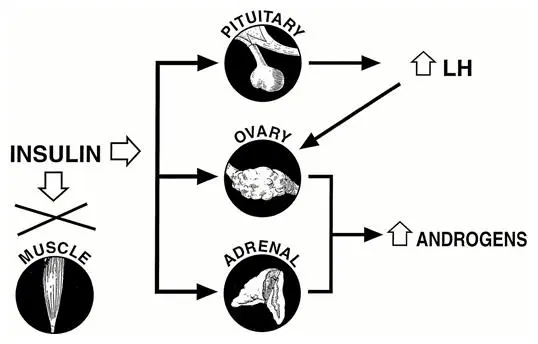
That means treating your insulin levels should be a priority if you have PCOS.
Insulin acts as a growth hormone in your body.
Under the influence of other hormones, your diet, stress levels, etc. insulin acts to take calories that you consume and shove them into your fat cells for later use.
This is how insulin was intended to be used – to help your body store fat for a “rainy” day.
But with insulin resistance, this mechanism works against the body and promotes constant fat storage.
What’s more, is that in the presence of high insulin levels your ability to burn fat as an energy source is effectively shut off.
This means that most women with PCOS will have to treat insulin levels in order to lose weight.
It just so happens though, that treating insulin levels will most likely result in an overall improvement in more general PCOS symptoms.
But how do you treat insulin resistance?
You will have to step out of the conventional box and move beyond simple medications like metformin if you want to get serious about treating insulin resistance.
You need to manage insulin resistance by at least making the following changes:
- Target your diet to exclude sugars and refined carbohydrates
- Exercise wisely to include high-intensity interval training and targeted weight-lifting exercise
- Use targeted supplements to improve cellular insulin sensitivity
- Use newer and more effective medications other older medications like metformin (you can learn more about how to make metformin effective for weight loss in PCOS here)
- Address your thyroid status and get treatment if necessary
The conventional approach to managing insulin resistance is to throw you on metformin and cross your fingers while hoping for the best.
I don’t know anyone who has dramatically benefited from this approach – in fact in most women this does very little.
Instead, you need to take a comprehensive approach that includes multiple therapies and get serious about lowering your insulin levels.
#4. Don’t neglect thyroid function
Thyroid function and many of the symptoms of PCOS match up quite closely.
So much in fact that physicians recommend you rule out the presence of hypothyroidism before making the diagnosis of PCOS (5).
This is even more interesting when you consider that the current treatment paradigm for hypothyroidism is about 20 years behind the times.
This old treatment paradigm results in many missed cases of hypothyroidism.
This begs the question:
Are some cases of PCOS really just missed cases of hypothyroidism?
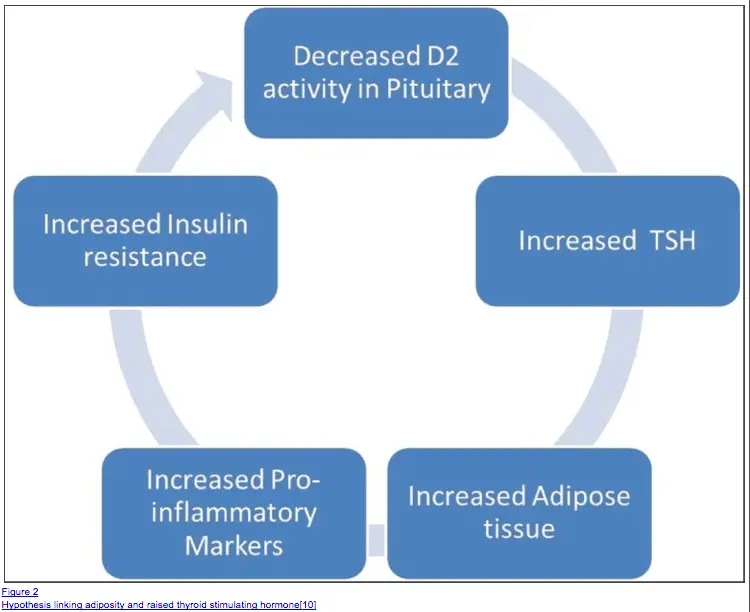
My experience suggests that this might be the case in some individuals, but the story is more complex than that.
Hypothyroidism results in several changes that can either initiate or simply make worse hormone imbalances that lead to PCOS.
For example:
Your thyroid is involved in managing your metabolism (6) and helping you maintain a normal weight (one symptom of PCOS is weight gain).
Your thyroid helps regulate progesterone levels (7) and is involved in ovulation and normal menstrual cycles (one symptom of PCOS is infertility and menstrual irregularities).
Your thyroid is involved in helping sensitize your cells to insulin (8) and promoting normal blood glucose and insulin regulation (one symptom of PCOS is insulin resistance).
The list goes on, but hopefully, you can start to see the trend.
Even if thyroid dysfunction doesn’t directly cause PCOS, it almost certainly is involved in potentiating the symptoms once they exist.
What’s worse is that your thyroid becomes dysregulated once you become overweight – that means that most women (and men) who are overweight do have some element of hypothyroidism at baseline (9).
This connection is enough for me to suggest that ALL women with PCOS get a full thyroid panel to adequately assess for hypothyroidism.
This would include all of the following tests at baseline:
- TSH
- Free T3
- Free T4
- Reverse T3
- Thyroid antibodies (thyroglobulin antibody and TPO antibody)
- Sex hormone-binding globulin
Once you get these tests, make sure you evaluate them with the “optimal” ranges in mind.
Because there is a lot of controversy surrounding thyroid hormone evaluation I suggest you read this post for more information on how to assess your thyroid lab tests.
For now just realize that because your thyroid is involved in regulating your metabolism, it will most likely be necessary for you to address your thyroid function if you are interested in weight loss.
#5. Manage leptin levels
Leptin is probably #2 in terms of importance as to how it relates to weight loss in patients with PCOS.
Leptin is a hormone involved in helping your brain to regulate both your metabolism and your appetite (10).
Normal leptin levels help the body lose weight and promote proper fat burn.
But when you develop a condition known as leptin resistance, the entire system goes haywire.
Instead of helping your body lose weight, high leptin levels actually slow down your metabolism and increase your appetite.
This results in a chain reaction making weight loss almost impossible until you adequately lower your leptin levels and treat leptin resistance.

Leptin resistance is actually quite common in women with PCOS (11) because it tends to accompany insulin resistance (one of the hallmarks of PCOS) and it’s associated with yo-yo dieting.
Each time you diet, as defined by reducing your calories, you slightly damage your metabolism and make leptin levels worse.
One or two dieting attempts will not cause significant insulin resistance, but if you’ve dieted 5-10x over your life then you will have developed significant leptin resistance.
This mechanism is why patients may have noticed that dieting has worked for them in the past, but now it no longer works.
This also explains how some women can eat 100% paleo and exercise every day but not lose ANY weight.
Once you get to this point it’s not about your diet or how much you exercise, it’s about managing your hormones if you have any hope to lose weight.
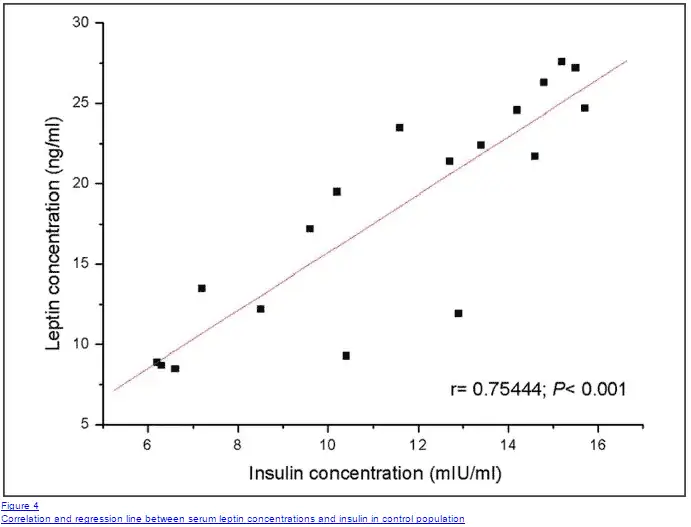
Treating leptin resistance is tricky, especially because most physicians are not well informed about its involvement in weight loss resistance, but it CAN be treated.
Start with these concepts:
- Make sure not to consume too much protein (high protein stimulates leptin levels)
- Don’t overexercise (you don’t want your body to think you are in starvation mode)
- Make sure to consume adequate calories for your metabolism (match your calories consumed to your calories burned)
- Use advanced medications designed to reverse leptin resistance
- Use targeted supplements that have been shown to reduce leptin levels
- Treat thyroid dysfunction aggressively
You can find more information about treating leptin resistance in this post.
#6. Exercise correctly (but not too much)
We need to talk about exercise because many of you trying to lose weight are doing it incorrectly.
What you need to understand is that most people wrongly assume that they can combat weight loss by simply over-exercising.
This leads to a chain reaction that causes an increase in cortisol levels which promotes insulin resistance and weight gain.
Constant episodes of high-intensity exercise can also promote a slowing down of your metabolism (12) if accompanied by calorie restriction (reducing how many calories you consume).
Why?
Because your body was built and designed to exactly match the number of calories that you burn to the calories that you consume.
Contrary to popular belief you can NOT simply exercise more and eat less to promote weight loss long term.
In fact, this combination has been clinically proven to damage your metabolism, and this damage lasts years.

Instead of trying to brute force your way into weight loss, you need to change your mindset to one of finesse.
You need to match your exercise routine to your basal metabolic rate (or resting energy expenditure).
This doesn’t mean you cut out exercise altogether.
You want to, and need to, incorporate exercise into your routine – but you shouldn’t overdo it.
I know this can be a difficult concept to grasp because it flies in the face of all (or most) information you’ve read up till now.
But I want you to ask yourself one question:
Is your current treatment actually working? Are you actually losing weight?
If the answer is no, then there is obviously a problem somewhere in the system.
If you fall into that category then you should seriously pay close attention to the tips in this article.
#7. Don’t forget to Detox
Believe it or not, detoxing is actually quite important for weight loss in patients with PCOS (13).
This isn’t the “typical” type of detox you’re used to reading about.
I’m not suggesting that drinking lemon water with ginger will dramatically result in weight loss, instead, I’m saying you want to focus on getting rid of certain chemicals that might be sabotaging your weight loss efforts.
I’m specifically referring to xenoestrogens and endocrine-disrupting chemicals.
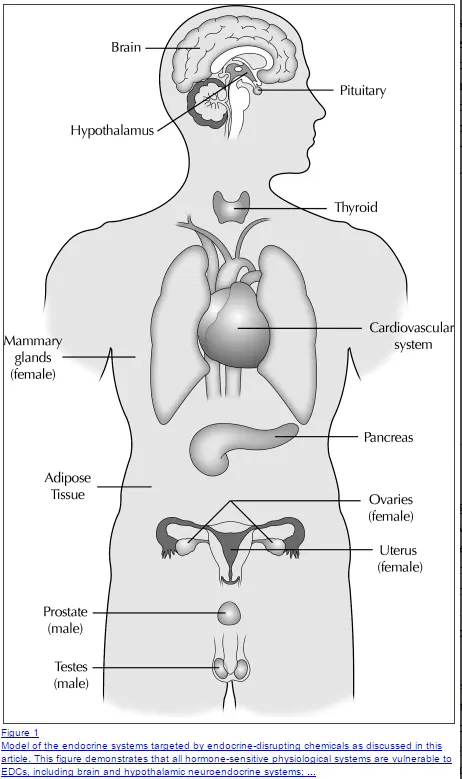
These are chemicals that, as their name implies, directly interfere with normal hormone balance in the body.
What’s worse is that these chemicals are ubiquitous (meaning you come into contact with them on a daily basis).
Under normal circumstances, your body has no issues metabolizing them and getting rid of them, which is why we didn’t realize they were a problem.
But as they become more and more common we (in medicine) are beginning to see that they do in fact interfere with normal hormone function.
It has been shown that certain chemicals actually sit on and activate the estrogen receptors in your body (14).
It is through this mechanism that certain chemicals can stimulate breast tissue growth and fat cell growth.
This mechanism also extends to blocking thyroid function as well.
The point here is that certain individuals seem to be more susceptible to these effects than others.
In some cases, these chemicals may interfere with your ability to lose weight up to 20-30% or more (and it is these patients that need to focus on detoxing).
There are many supplements that you can take that actually increase the metabolism of these chemicals through your liver to help your body eliminate them.
Using these supplements can promote normal estrogen metabolism as well which is highly beneficial for those with PCOS.
#8. Use supplements & medications wisely
Last on the list, which helps tie everything together, is using supplements and certain medications together to help with weight loss.
The best approach to take is to target supplements and medications to the hormone imbalances that you are experiencing.
There are many supplements that can directly target and treat leptin resistance AND insulin resistance.
If you know these to be a problem in your body, then you can follow the guides to help with your supplementation.
In addition, several medications have been shown to be far more efficacious (meaning more powerful) than metformin at treating hormone imbalances like leptin and insulin resistance.
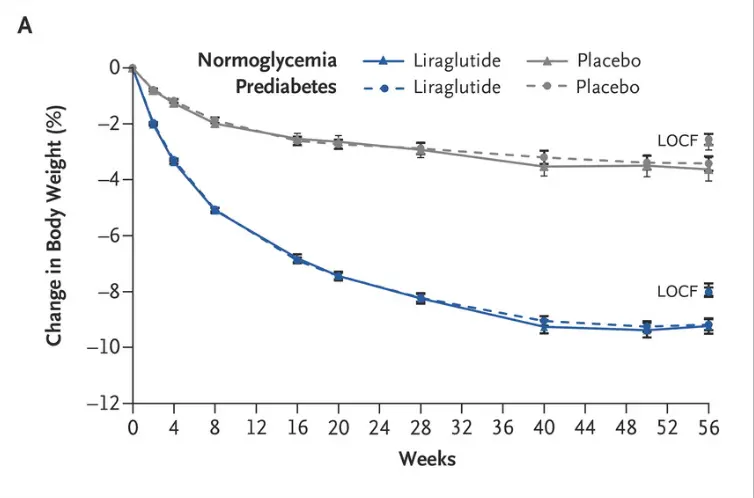
Medications that fall into the GLP-1 agonist category are particularly effective for those with PCOS as they have been shown to help with weight loss, lower insulin levels and promote normal testosterone levels.
Certain medications like Saxenda have been shown to help patients lose up to 10% of their body weight over several months.
These results can be enhanced if used in conjunction with the other therapies in this weight loss guide.
When it comes to supplementing or using medications you need to make sure you find a knowledgeable physician who can help guide you.
That means someone who can help guide you in terms of dosing and titration and combining or “stacking” medications and supplements on top of each other for best results.
Back to you
Losing weight with PCOS doesn’t have to be impossible.
By taking the correct approach to managing your hormones and treating the root cause of PCOS you can lose weight and start feeling better.
Remember that in order to get the best results you should be stacking or layering these therapies upon one another.
Using just one of them and hoping for the best is not the best approach.
Focusing on the underlying hormone imbalances that cause PCOS like insulin resistance and leptin resistance will lead to the most weight loss.
Try to find a physician that is aware of these topics and who can help guide you through this process.
Now it’s your turn:
Do you have PCOS?
Is it impossible for you to lose weight?
What has worked for you? What hasn’t?
Leave your comments below!
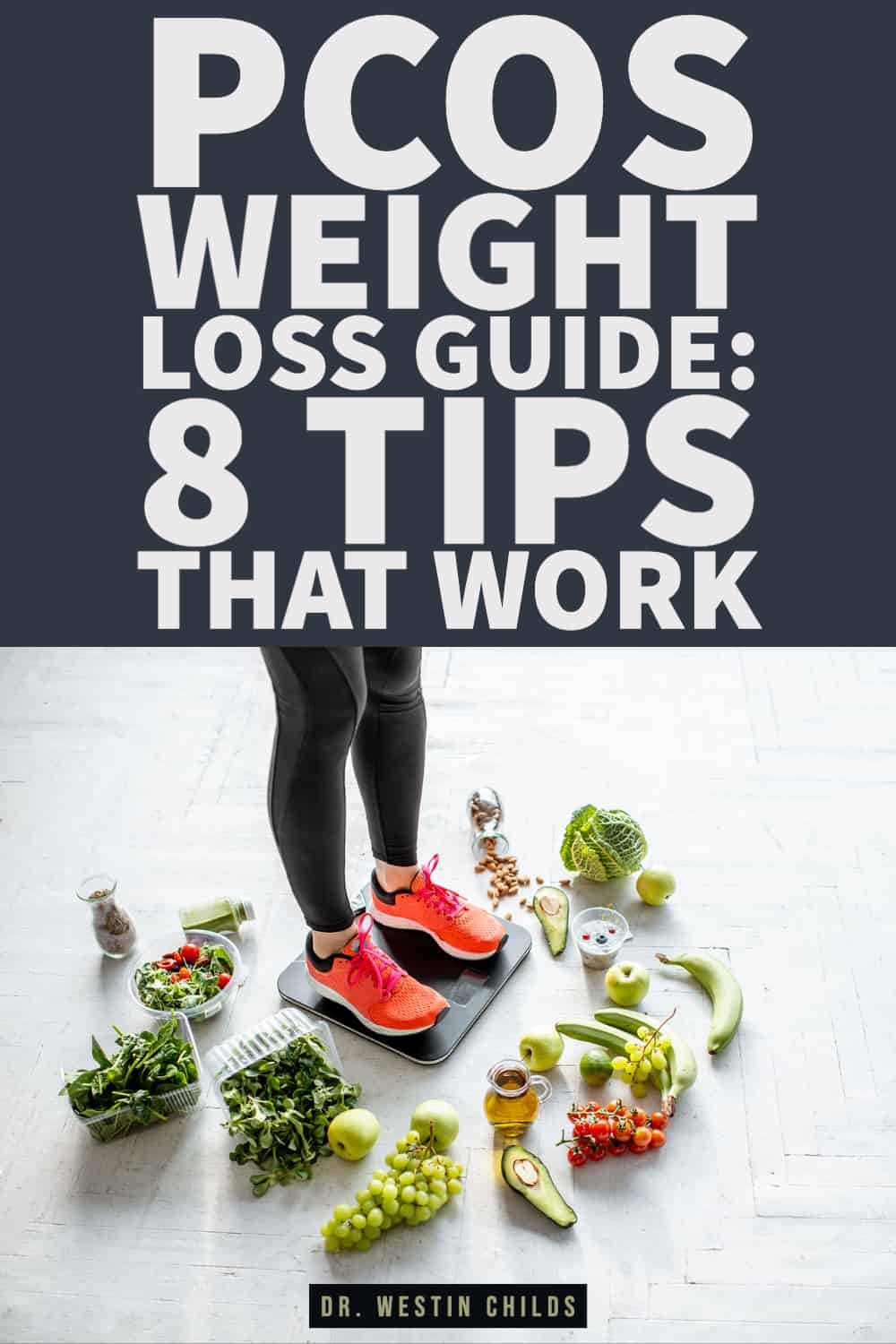
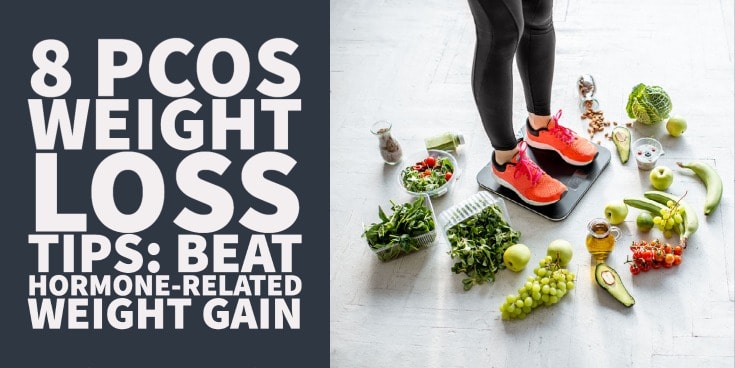
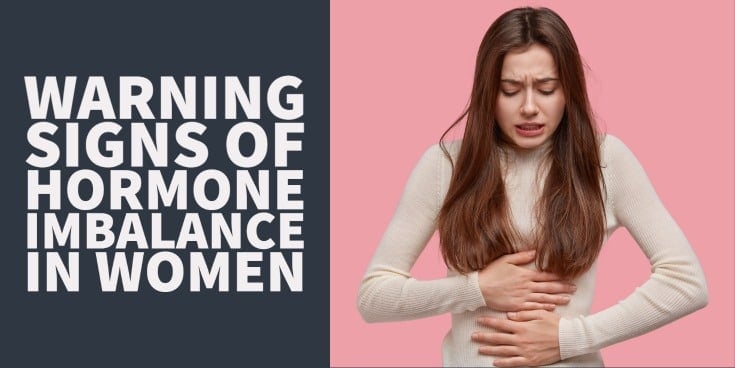

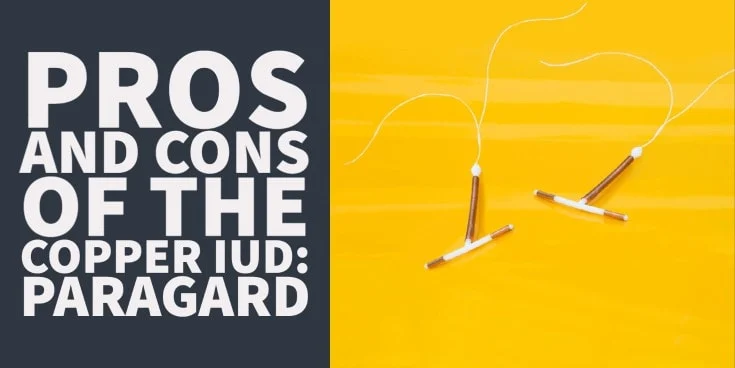

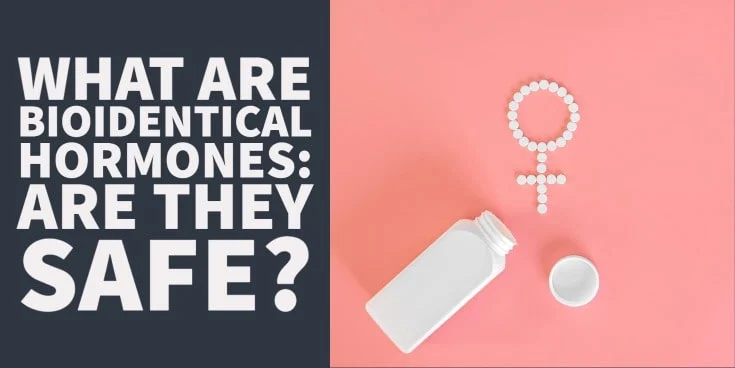


Dear Dr Child’s,
I also forgot to mention regarding my daughter is that she has just been given Victoza at .6 daily starting on 4/17/18 and put on ideal protein diet by an alternative doctor. I’m not thrilled with ideal protein and want her to stop asap. She is not on any Tylenol or ibuprofen at all and just taking multivitamins, iron, vitamin D, emu oil etc. She did have a 12 day course of antibiotics in January 2018.
Thank you for your response.
Lindsy
Doc. Can I take Apple Cider Vinegar for weight loss in PCOS? Pls Pls reply.
Hi Sakshi,
You can take it, but it probably won’t help with weight loss.
Wow, after reading this article, I realize PCOS is even more complex than I thought! Very informative, but I’m very overwhelmed. I was diagnosed 9 months ago, but left my doctor because she was just telling me the same diet advice week after week. “Avoid pasta, white potatoes, bread, etc…” So I’m relying on PCOS Facebook groups and my research. I’m just worried that most doctors aren’t familiar with the specifics and tend to generalize PCOS as a whole 🙁
Hi Sara,
Be cautious with facebook groups and the recommendations that stem from them. While I do think they can potentially be a good thing for some people, I have also seen many instances where bad information has lead to negative health outcomes and the advice gets repeated continually. Just be sure to confirm anything you hear in the groups with solid resources and research.
This may be the most helpful article I have ever read. I was diagnosed with PCOS in college almost 10 years ago. I’ve always struggled with weight, even though I’ve been an athlete and workout warrior my whole life. I have tried every diet out there like everyone with PCOS. All of my doctors to day have steered me towards birth control and metformin (even though I don’t have blood sugar issues). I took some things into my own hands. 4 years ago I took out carbs, alcohol and processed foods. I lost 60 pounds! Then a year ago I decided to get off birth control and took up a Whole30 diet. For the first time in my life I have been experiencing a regular cycle without birth control. I still really struggle with weight fluctuations. This article and the one about supplements was very helpful. I am going to try to make some additional changes. Thank you!
Hi Molly,
So glad you found it helpful! Thanks for sharing your story 🙂